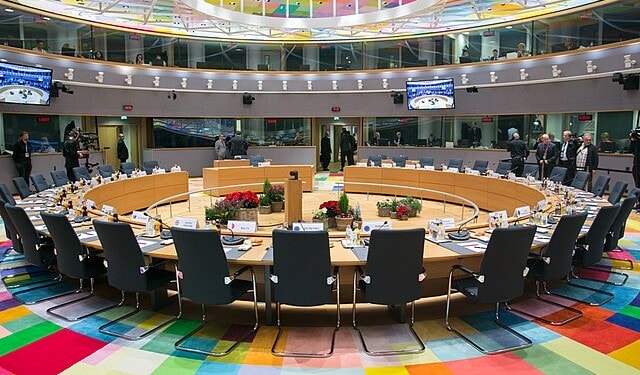On Tuesday, the Russian foreign ministry sent in a notification via telegram of its departure from the Council of Europe (COE), the pan-European rights body, after pressure to remove Moscow grew from members of the Strasbourg based body. The telegram stated, they “are launching the procedure to exit the COE, and have given notification of our departure to Secretary General Marija Pejcinovic Buric.”
Leaving will result in the loss of several European connections and allow Russia to reinstate laws like the death penalty.
In practice, it means that Russia’s quarter-century membership of the Council of Europe (COE) will end, which has been a major gain for the country heralding its arrival among the ranks of advanced, liberal countries after the fall of the Soviet empire. This marks a major setback for human rights in Russia. As a result of the loss of membership, Russian citizens will no longer be able to file applications to the European Court of Human Rights (ECHR) and Russia will also be removed as a signatory to the European Convention of Human Rights.
Prior to pulling out, Russia had been effectively suspended from all its rights of representation on February 25, a day after thousands of Russian troops invaded Ukraine on February 24.
After Ukrainian Prime Minister Denys Shymyhal called for Russia to be immediately expelled from the COE on Monday over their invasion into the pro-Western country, the Strasbourg body parliament also planned on meeting Tuesday to discuss the expulsion of Russia to the committee of ministers — the COE’s main decision-making body.
Ukrainian Prime Minister @Denys_Shmyhal has demanded that the Russian Federation be immediately ousted from the Council of Europe while addressing yesterday's extraordinary Plenary Session of the Parliamentary Assembly (PACE)
➡️https://t.co/7Lv8ZiaQcC pic.twitter.com/t2lbnpiKH0
— Council of Europe (@coe) March 15, 2022
This will be the second time in history a member state quits the COE body. Before Russia, Greece had been the only country to leave — temporarily — in 1969 after the Colonels’ regime in Greece launched attacks, essentially infringing human rights. Similarly, talks of expelling Greece in the Council had also been circulating prior to their premeditated exit. Eventually, in December of 1974, Greece was readmitted to the COE.
The Council of Europe was formed in the wake of World War II to defend and uphold human rights, democracy and establish a rule of law over the continent. Officially established in 1949, their headquarters reside at the Palace of Europe, in Strasbourg, France. Russia joined the COE in 1996 after the fall of the Wall of Berlin and the end of the Soviet Union.
The Russian foreign ministry posted a statement on their decision to begin the process of leaving the Council, stating they had “no regrets” about exiting. The ministry also assured Russian citizens that leaving would not affect their rights and freedoms and that resolutions already implemented by the European Courts of Human Rights will continue to be respected as long as they don’t contradict the Russian Constitution.
However, one of these laws that could change could be the death penalty — as membership with the COE prohibits the act – and is a matter of concern for many.
Former Russian president Dmitry Medvedev — now current deputy national security council chief — mentioned their suspension would be a “good opportunity to restore a number of important measures to prevent serious crimes such as the death penalty… which is actively used in the US and China.”
That Medvedev should say this comes as an unwelcome surprise: Up to now, he has always been viewed in the West as someone very different from Putin, an ex-KGB lieutenant; he had the reputation of an economist with relatively moderate, middle-of-the-road views. It would appear that this is not the case.
Belarus is the only European country to still use the death penalty, an ally with Moscow and not a member of the Council.
The Russian ministry statement also claimed EU and NATO member states within the COE had turned the Council into an instrument for “opposing anti-Russian policies.”
As Russia pulls out of the COE, the Council will lose nearly seven percent of its annual budget — around 500 million euros — but many member states noted the action was necessary and expressed confidence in the financial sustainability of the organization despite the loss. Particularly, France and Germany were among the many several member states who conveyed reassurance that the financial disruption could be handled.
With many financial changes affecting European institutions regarding cutting ties with Russia on gas and now their exit from the Council of Europe, European member states will have to find a way to fill the gap in the organization’s budget as quickly as possible – but surely, given the small amount, this should be no problem.
Editor’s Note: The opinions expressed here by Impakter.com columnists are their own, not those of Impakter.com. Featured Photo: European Council on December 14, 2017. Source: European Council, Wikimedia.









